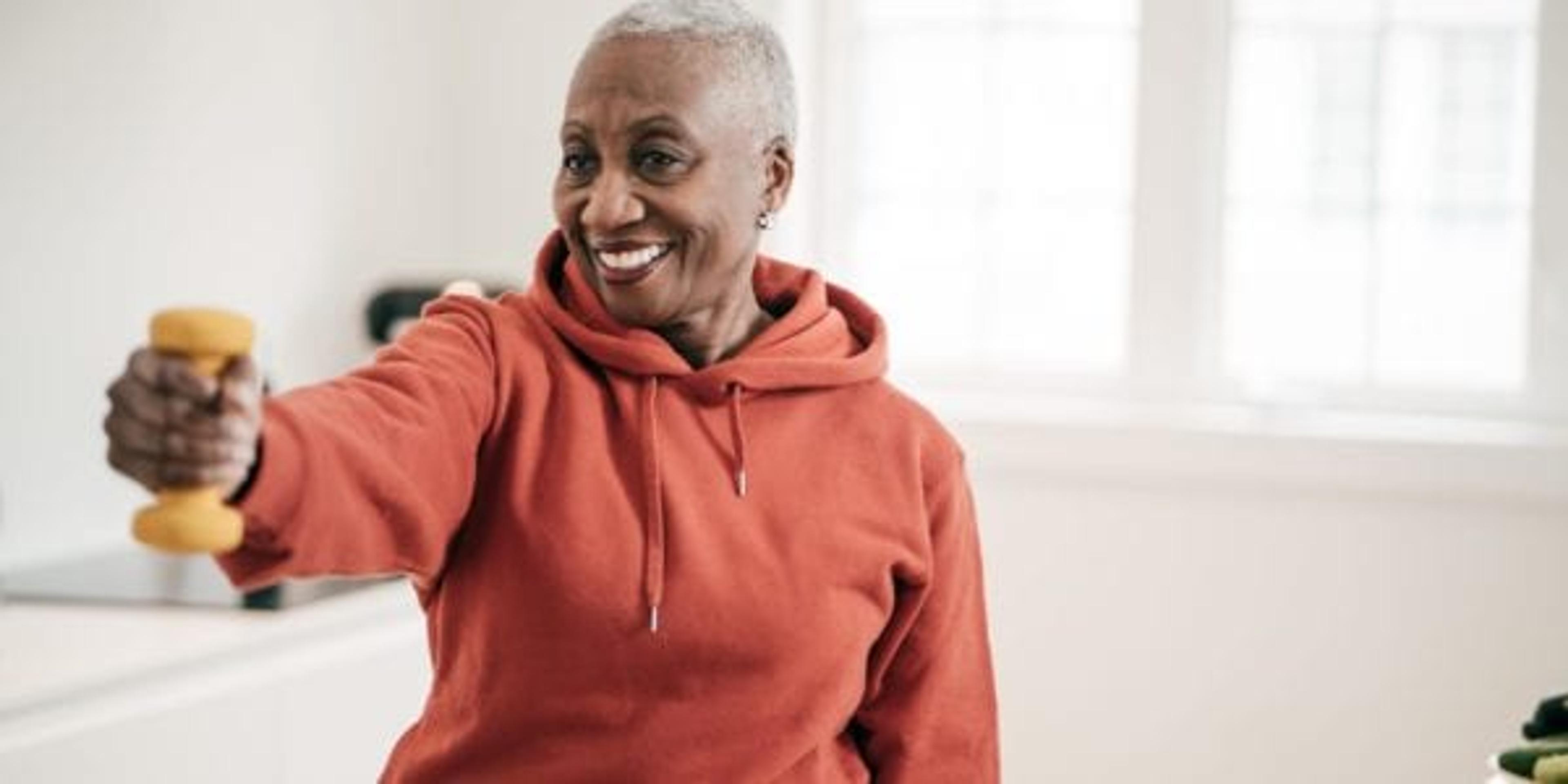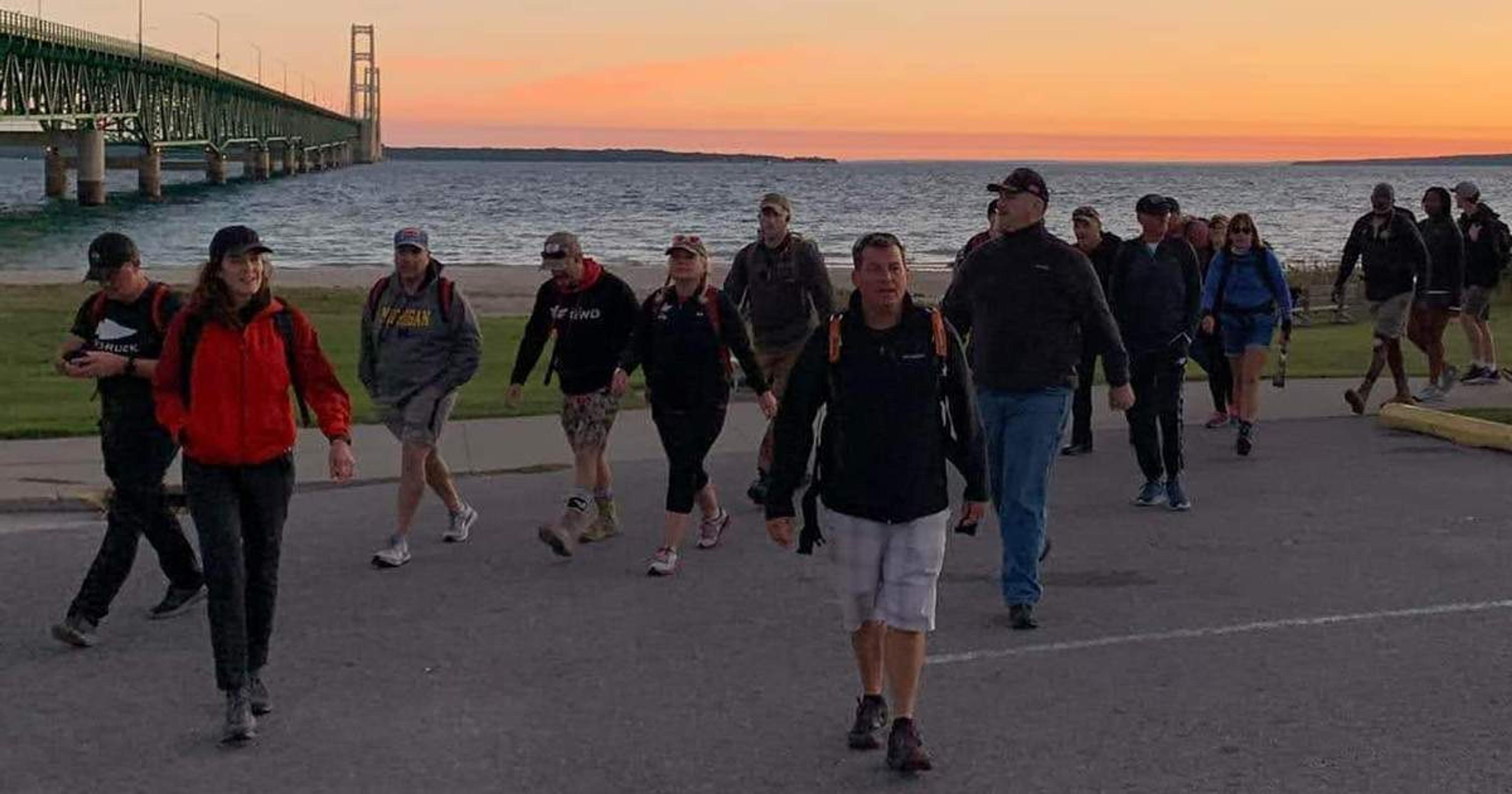Encouraging Exercise for an Aging Loved One
Guest Blogger
| 4 min read

Exercise is important at every stage of life—especially as we age.
We all know the benefits: Regular physical activity can help manage or prevent chronic health conditions, improve mood and can be a critical factor in preserving both an older adult’s mobility and abilities. But getting your loved one (or even yourself) started can be hard. Fear, fatigue, chronic pain or just plain lack of motivation might be keeping your loved one stationary. So how do you get them off the couch and on to healthy habits?
Address issues that might be holding them back
For people whose mobility or balance has declined, fear of falling may play a factor. Encourage them to take a class like A Matter of Balance to learn fall prevention techniques and tackle falling fears. Many Area Agencies on Aging offer the class. Consult their physician about mobility aids that might improve confidence—like a cane or walker. A physical therapist can assist in making sure your loved one is using the right equipment and that it’s adjusted correctly.
Consulting your loved one’s doctor can also be a good idea if pain is a barrier. After all, it can be difficult to move your body if that body hurts. A physician may have ideas about managing pain or addressing its cause.
Ditch the lecture and make it fun
Don’t spend time trying to cajole, guilt or lecture your loved one into exercise. Instead, focus on finding an activity you both enjoy that allows you to connect with each other. Some ideas:
- Put on some music and dance. Play songs that are meaningful to your loved one and invite them for a living room dance party. Have them teach you some moves from when they were young.
- Take a walk and listen to the sound of the birds. Bring a book so you can identify the birds you see. Take pictures or bring along a journal so you can remember them together when you’re at home.
- Get out in the garden. Put on the gloves and ask your loved one to help you care for the plants, or just walk through the garden and enjoy. Installing raised garden beds might make it more accessible for people who have trouble bending or kneeling. Planting in containers can work too—and can make gardening possible in even small spaces.
- Go for a swim. Your local YMCA, community center or senior center might have a pool that is open to the public—or even water exercise classes tailored specifically to older adults.
- Try chair aerobics, chair yoga or gentle stretching. You can find classes on YouTube or PBS. Set the mood! Incorporate maracas for a Latin feel or dim the lights for a relaxing atmosphere for yoga.
Make it safe
Get the green light from your loved one’s doctor before starting anything new (especially if they have chronic conditions or physical limitations). Look around the space you’ll be using with an eye toward potential hazards. Inside: Look for cords, rugs, items on the floor or changes in terrain. Outside: Look for broken steps, loose handrails or uneven ground.
Lose the timer
Remember, you don’t have to make it prolonged or intense to get the benefits. Break it into short sessions scattered throughout the day. It can be just as effective and will likely be more fun and more in line with your loved one’s stamina.
This blog post is courtesy of the Area Agency on Aging 1-B, a nonprofit responsible for serving more than 700,000 people 60 and older in Livingston, Macomb, Monroe, Oakland, St. Clair and Washtenaw counties. By providing community-based services from meals to in-home care, the Area Agency on Aging 1-B enables older adults and adults with disabilities to maintain their health and independence in their homes. More information is available by calling the AAA 1-B Information and Assistance Telephone line at (800) 852-7795 or visiting www.aaa1b.org. We’ll be partnering with AAA 1-B on our Midlife Map series. Their experts will provide tips geared toward the “sandwich generation” – people in midlife facing the complicated juggling act of caring for children and older parents at the same time.
Want more content geared toward the joys of mid-life? Subscribe to our Midlife Map series here:
Please leave this field empty Interested in more of this content? We'll send related updates right to your inbox. Email Address *
Enjoy your new subscription!
Related:
Photo credit: kate_sept2004





